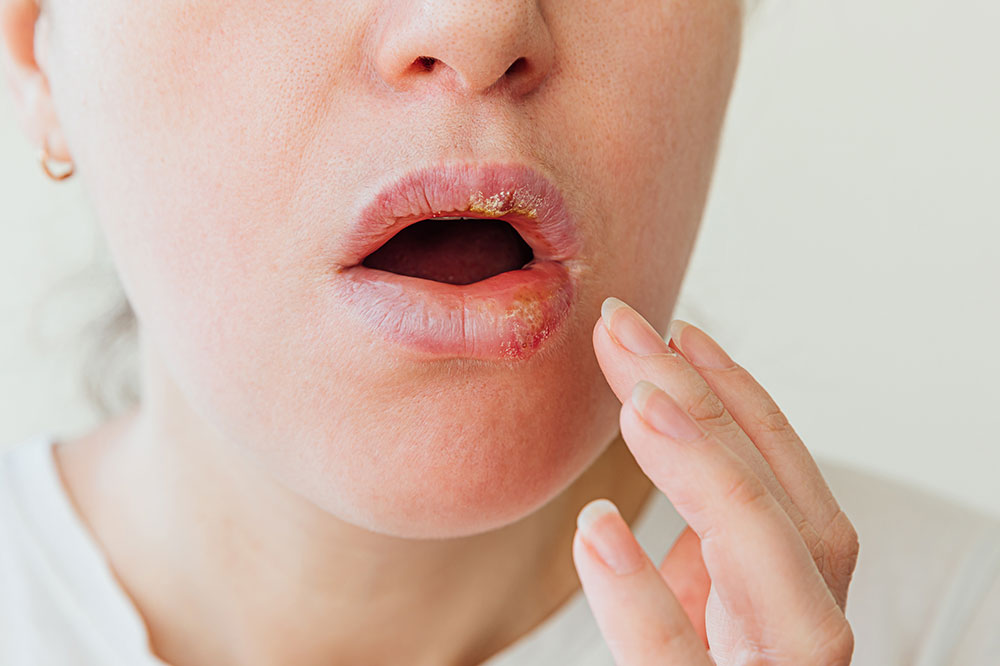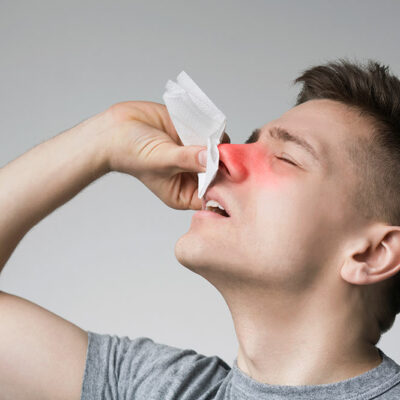
Cold Sores – Common Causes and Triggers
Cold sores are blisters that develop on or around the mouth, and they are also known as fever blisters. The Herpes Simplex Virus-1 is a prevalent strain of the herpes simplex virus, contracting which can cause cold sores. The virus stays dormant in between attacks once contracted, so one should avoid common trigger factors to prevent recurrences. This article discusses what causes cold sores and the common triggers associated with the condition.
1. Causes of cold sores
- Herpes Simplex Virus (HSV)
HSV is the primary cause of cold sores. There are two types of this virus: type 1 causes cold sores, and type 2 is responsible for genital herpes. The sores look more or less the same in infections caused by both forms of the virus. Cold sores are contagious and can spread through direct contact. The virus can also be transmitted through shared utensils, food, cosmetics, or towels. - Reinfection
Contracting an HSV infection means one can experience multiple cold sore outbreaks. The virus stays dormant in the body after the sores heal, and new sores can show any time it relapses. People with weak immunity face a higher risk of experiencing frequent outbreaks, particularly during times of stress, illnesses, fever, other viral infections, injuries, and extreme weather conditions. That said, one can take steps to manage these trigger factors and prevent episodes.
2. Common trigger factors that can cause recurrent outbreaks
The causes of recurrent cold sore outbreaks include the following:
- Fatigue
Fatigue is a leading trigger of cold sores as low energy levels in the body affect the body’s disease-fighting capability and make it difficult for the immune system to combat viruses. This gives the HSV a chance to replicate and cause a cold sore outbreak. Getting adequate rest is necessary to keep the immune system functioning properly and prevent flare-ups. - Stress
Studies suggest that feeling stressed has direct implications on physical as well as mental health. This can weaken the immune system, nudging the dormant virus to resurface and cause cold sores. One can spend some time in nature, take up a hobby, exercise, or meditate to keep stress at bay and avoid cold sores. - Other reasons
Other triggers related to the recurrence of cold sores include exposure to extreme cold conditions. Dry air, low temperatures, or wind can dry out the lips and make them more vulnerable to an outbreak. Some effective tips to prevent flare-ups due to these reasons are to ensure hydration and protect the face against environmental elements. Wearing lip sunscreen can also prove helpful. Fever and hormonal changes, especially those associated with menstruation, can also cause the virus to resurface.
While HSV is the main cause of cold sores, several things can trigger their recurrence.


